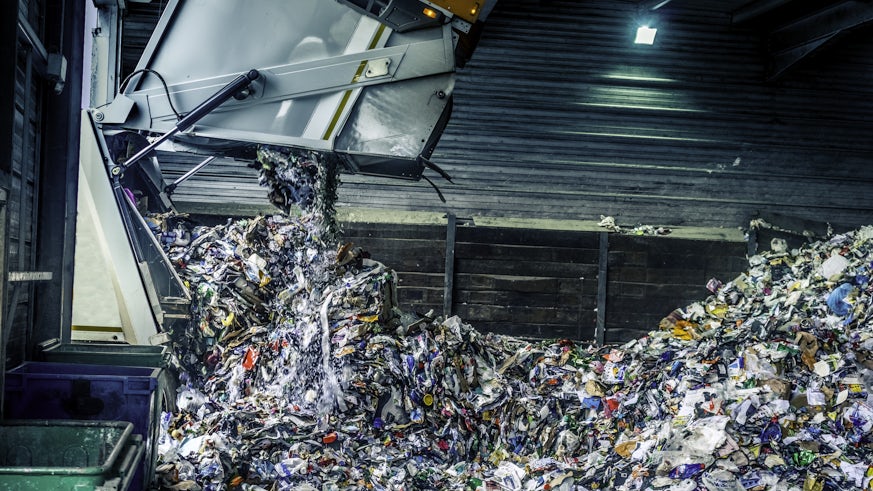Breaking down plastic waste quickly, cleanly and cheaply
13 July 2023

A greener, faster and more effective way of recycling plastics is being developed by researchers at Cardiff University.
The ONESTEP project will use a microwave-based, zero-emission process to break down plastics into their chemical components for reuse in new high-quality plastic production.
Funded by UK Research and Innovation's Engineering and Physical Sciences Research Council (EPSRC) and Biotechnology and Biological Sciences Research Council (BBSRC), ONESTEP is one of five ambitious new projects which aim to create a more sustainable plastics system and help the UK move towards a circular plastics economy.
£6 million in funding will underpin the work to cut the huge environmental damage that plastics cause, as well as increasing their longevity in use and boosting their value.
Dr Daniel Slocombe, a Reader at Cardiff University’s School of Engineering and the ONESTEP project lead, said: "Recycling plastics is costly and energy-intensive, and also produces carbon emissions. Many types can’t be recycled at all, so a revolution is needed that makes it much easier to break down plastic waste into its molecular-level components and then use these to produce new, reusable plastics.
"ONESTEP aims to achieve this by harnessing our recent advances in catalysis using microwave- electromagnetic fields to process plastics more efficiently, in fewer steps and with better quality products, leading to a fully circular plastic economy."
The EPSRC-BBSRC initiative reflects the need for fresh thinking to make plastics and their use more sustainable.
EPSRC Interim Executive Chair Professor Miles Padgett said: "Harnessing the extraordinary strength and diversity of the UK’s research base, these five projects all address substantial challenges in highly innovative ways. The potential prizes are huge: achieving a circular economy for plastics will unlock a host of vital environmental and economic benefits.
"Locking into UKRI’s strategic theme of ‘building a greener future’, this new research will enable a significant shift away from the culture of limited use then disposal where plastics are concerned, and so help them continue to play a vital role in developed societies."
Share this story
The School has world leading research, strong links with industry, and a friendly and supportive teaching environment make us one of the leading engineering schools in the UK.


